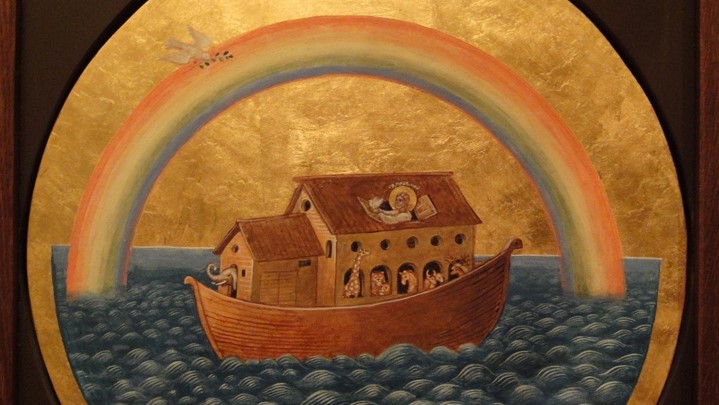
Genesis 9:8-17
Lent B13
8 Then GodA said to NoahB and to his sons with him, 9 “As for me,C I am establishingD my covenantE with you and your descendantsF after you,
10 and with every livingG creatureH that is with you, the birds,I the domestic animals,J
and every animalK of the earthL with you, as many as came out of the ark.M, N
11 I establish my covenant with you, that never again shall all fleshO be cut offP by the watersQ of a flood,R and never again shall there be a flood to destroyS the earth.”
12 God said, “This is the signT of the covenant that I makeU between me and you and every living creature that is with you, for all futureV generations:W
13 I have setX my bowY in the clouds,Z and it shall be a sign of the covenant between me and the earth.
14 When I bringAA clouds over the earth and the bow is seenBB in the clouds, 15 I will rememberCC my covenant that is between me and you and every living creature of all flesh; and the waters shall never again become a flood to destroy all flesh. 16 When the bow is in the clouds, I will see it and remember the everlastingDD covenant between God and every living creature of all flesh that is on the earth.”
17 God said to Noah, “This is the sign of the covenant that I have established between me and all flesh that is on the earth.”
Image credit: “Noah’s Ark Icon” by Natalia Ermakova, 20th Century, at St. Nicholas Russian Orthodox Church in Amsterdam.
